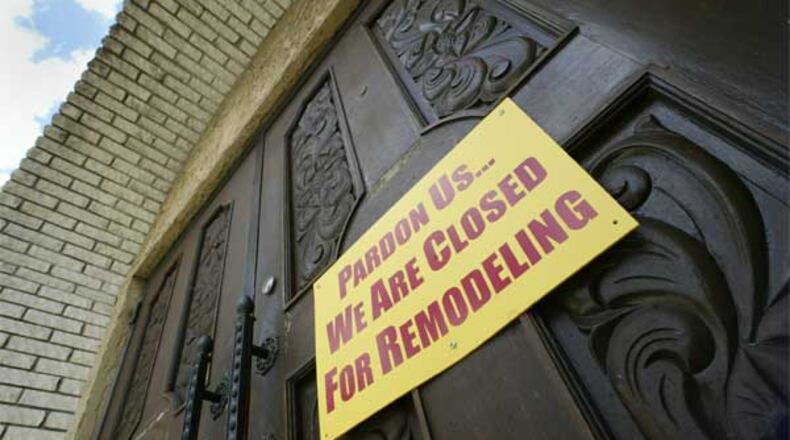Mantia filed a trademark-infringement and breach-of-contract lawsuit in April 2009 against her stepdaughter, Christie Mantia. Anne and Christie Mantia co-owned Dominic’s until 2005, when Christie agreed to a buyout in which she accepted $460,000 and agreed to not use the term “Dominic’s” in any future restaurant ventures. Also named as a defendant was Reece Powers III, who in 2009 was poised to open a restaurant called Dominic’s with Christie and who went on to open Duke’s restaurant in West Carrollton.
The lawsuit led to the court-ordered closure of Duke’s, and in March 2010, the judge granted Anne Mantia a default judgment against Powers and Christie Mantia. But the issue of monetary damages was never fully resolved, in part because Powers filed for personal bankruptcy.
Neither Christie Mantia nor Powers attended Tuesday’s hearing, at which Anne Mantia detailed what she said was the negative impact that the defendants’ actions had on her ability to open an all-new Dominic’s restaurant and on her business of selling bottled pasta sauce and salad dressing. Anne Mantia’s husband, Tim Wendler, estimated in his testimony that his wife lost, potentially, $750,000 to $800,000.
Judge Rose has not yet issued a ruling. But even if he awards a large sum of money to Anne Mantia, it is unclear how much the plaintiff in this drawn-out lawsuit will actually collect.
Realtors, lawyers oppose Kasich plan
Two membership organizations — one statewide, one local — last week attacked Gov. Kasich’s plan to extend the state sales tax to certain professional services.
The 26,000-member Ohio Association of Realtors said in a news release that slapping the tax on real estate services “will unduly increase the cost of housing and business throughout the state” and “threatens a fragile but critical sector of the economy and will place an unnecessary financial burden on Ohio’s property owners.”
And the Dayton Bar Association is opposing the proposal, in part because for some legal work, business owners may end up hiring out-of-state attorneys in any one of the 46 other states that do not tax legal services. And the tax would “burden Ohio citizens facing involuntary legal hardships, limiting their access to justice,” the 1,600-member bar association said.
About the Author

